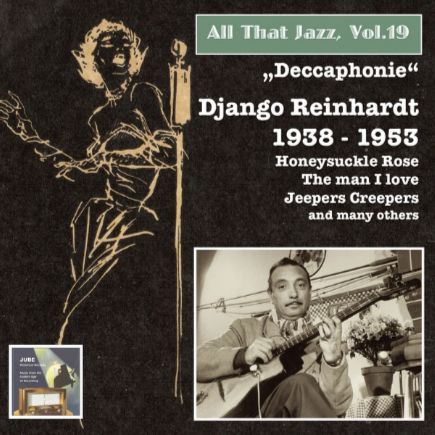Just One of Those Things: une miniature brillante
Une origine théâtrale devenue universelle
Écrite et composée par Cole Porter pour la comédie musicale Jubilee, créée à Broadway en 1935 — dont est également issu Begin the Beguine —, Just One of Those Things s’est rapidement imposée comme un standard majeur du jazz. Conçue pour la scène, la chanson a très tôt dépassé son cadre théâtral pour intégrer le répertoire commun des chanteurs et des instrumentistes. Son succès durable repose sur un équilibre rare entre sophistication de l’écriture et émotion contenue, signature emblématique de l’esthétique porterienne.
L’esprit du Great American Songbook
La chanson incarne avec une précision remarquable l’esthétique du Great American Songbook: une mélodie élégante, mobile et naturellement chantante, associée à un texte empreint d’une ironie douce, subtilement mélancolique. Elle évoque une relation amoureuse brève mais significative, acceptée sans amertume ni illusion. Cette élégance désabusée repose sur la capacité de Porter à suggérer la profondeur émotionnelle sans jamais alourdir le propos, laissant affleurer une nostalgie maîtrisée sous une apparente légèreté.
Un terrain privilégié pour l’improvisation
Sur le plan musical, Just One of Those Things se distingue par une structure harmonique fluide mais subtilement complexe. Les modulations inattendues et les enchaînements d’accords stimulent l’imagination des improvisateurs tout en préservant une grande cohérence formelle. Dès l’ère swing, les musiciens s’en emparent pour explorer le rebond rythmique, la clarté mélodique et la souplesse du phrasé, faisant de cette miniature un espace d’expression d’une richesse durable.
Django Reinhardt: le dialogue franco-américain du jazz
Enregistrée à Bruxelles le 21 mai 1947, cette version de Just One of Those Things réunit, autour de Django Reinhardt, Hubert Rostaing à la clarinette, Eugène Vées à la guitare rythmique, Emmanuel Soudieux à la contrebasse et Pierre Fouad à la batterie. Cet enregistrement, d’une élégance rare, reflète un moment charnière dans la trajectoire du guitariste, alors en pleine transition entre le swing européen et les nouvelles sonorités venues d’Amérique.
Au lendemain de la Seconde Guerre mondiale, Django découvre les évolutions du jazz moderne, notamment le bebop. Sans jamais renier son héritage manouche, il y intègre une liberté harmonique et rythmique nouvelle. Dans Just One of Those Things, standard écrit en 1935 par Cole Porter, il réinvente le langage du morceau à travers un phrasé incisif, des modulations audacieuses et une expressivité proprement singulière.
Le dialogue musical entre la guitare de Reinhardt et la clarinette de Rostaing constitue le cœur de cette interprétation. Là où la clarinette déploie des lignes souples et chantantes, Django répond par des traits nerveux, des attaques précises et une inventivité toujours renouvelée. La section rythmique, d’une cohésion exemplaire, soutient l’ensemble avec une pulsation souple et lumineuse, typique de la tradition manouche mais ouverte à la modernité.
Just One of Those Things: una miniatura brillante
Un origen teatral convertido en universal
Escrita y compuesta por Cole Porter para la comedia musical Jubilee, estrenada en Broadway en 1935 — de la que también procede Begin the Beguine —, Just One of Those Things se impuso rápidamente como un estándar fundamental del jazz. Concebida originalmente para el escenario, la canción superó muy pronto su contexto teatral para integrarse en el repertorio común de cantantes e instrumentistas. Su permanencia se basa en un equilibrio poco común entre sofisticación compositiva y emoción contenida, rasgo distintivo del estilo porteriano.
El espíritu del Great American Songbook
La canción encarna con notable precisión la estética del Great American Songbook: una melodía elegante, móvil y naturalmente cantable, unida a un texto de ironía delicada y melancolía sutil. Evoca una relación amorosa breve pero significativa, aceptada sin amargura ni ilusiones. Esta elegancia desengañada se apoya en la capacidad de Porter para sugerir profundidad emocional sin cargar el discurso, dejando aflorar una nostalgia contenida bajo una ligereza aparente.
Un espacio privilegiado para la improvisación
En el plano musical, Just One of Those Things se distingue por una estructura armónica fluida y sutilmente compleja. Las modulaciones inesperadas y las progresiones de acordes estimulan la imaginación de los improvisadores sin comprometer la coherencia formal. Desde la era del swing, los músicos la han utilizado para explorar el rebote rítmico, la claridad melódica y la flexibilidad del fraseo, convirtiendo esta miniatura en un terreno de expresión de notable riqueza.
Django Reinhardt: el diálogo franco-estadounidense del jazz
Grabada en Bruselas el 21 de mayo de 1947, esta versión de Just One of Those Things reúne, junto a Django Reinhardt, a Hubert Rostaing en el clarinete, Eugène Vées en la guitarra rítmica, Emmanuel Soudieux en el contrabajo y Pierre Fouad en la batería. Esta grabación, de una elegancia excepcional, refleja un momento decisivo en la trayectoria del guitarrista, inmerso entonces en una transición entre el swing europeo y las nuevas sonoridades procedentes de América.
Tras la Segunda Guerra Mundial, Django descubre las evoluciones del jazz moderno, en particular el bebop. Sin renunciar jamás a su herencia manouche, incorpora una libertad armónica y rítmica inédita. En Just One of Those Things, estándar compuesto en 1935 por Cole Porter, reinventa el lenguaje del tema a través de un fraseo incisivo, modulaciones audaces y una expresividad inconfundible.
El diálogo musical entre la guitarra de Reinhardt y el clarinete de Rostaing constituye el corazón de esta interpretación. Mientras el clarinete despliega líneas flexibles y melódicas, Django responde con pasajes nerviosos, ataques precisos y una inventiva constantemente renovada. La sección rítmica, de una cohesión ejemplar, sostiene el conjunto con una pulsación fluida y luminosa, típica de la tradición manouche pero abierta a la modernidad.
Just One of Those Things: una miniatura brillante
Un’origine teatrale divenuta universale
Scritta e composta da Cole Porter per la commedia musicale Jubilee, presentata a Broadway nel 1935 — dalla quale proviene anche Begin the Beguine —, Just One of Those Things si è rapidamente affermata come uno standard centrale del jazz. Pensata per il palcoscenico, la canzone ha presto superato il contesto teatrale per entrare nel repertorio condiviso di cantanti e strumentisti. Il suo successo duraturo risiede in un raro equilibrio tra sofisticazione compositiva ed emozione controllata, cifra distintiva dell’estetica porteriana.
Lo spirito del Great American Songbook
Il brano incarna con grande precisione l’estetica del Great American Songbook: una melodia elegante, mobile e naturalmente cantabile, accompagnata da un testo intriso di ironia delicata e malinconia sottile. Racconta una relazione amorosa breve ma significativa, accettata senza amarezza né illusioni. Questa eleganza disincantata nasce dalla capacità di Porter di suggerire profondità emotiva senza appesantire il discorso, lasciando emergere una nostalgia misurata sotto una leggerezza apparente.
Un terreno privilegiato per l’improvvisazione
Dal punto di vista musicale, Just One of Those Things si distingue per una struttura armonica fluida ma sottilmente complessa. Modulazioni inattese e concatenazioni di accordi stimolano l’immaginazione degli improvvisatori mantenendo una forte coerenza formale. Fin dall’era swing, i musicisti l’hanno adottata per esplorare il rimbalzo ritmico, la chiarezza melodica e la flessibilità del fraseggio, facendo di questa miniatura uno spazio espressivo di grande ricchezza.
Django Reinhardt: il dialogo franco-americano del jazz
Registrata a Bruxelles il 21 maggio 1947, questa versione di Just One of Those Things riunisce, attorno a Django Reinhardt, Hubert Rostaing al clarinetto, Eugène Vées alla chitarra ritmica, Emmanuel Soudieux al contrabbasso e Pierre Fouad alla batteria. Questa incisione, di rara eleganza, riflette un momento cruciale nel percorso del chitarrista, in piena transizione tra lo swing europeo e le nuove sonorità provenienti dall’America.
Nel dopoguerra, Django scopre le evoluzioni del jazz moderno, in particolare il bebop. Senza mai rinnegare le sue radici manouche, vi integra una nuova libertà armonica e ritmica. In Just One of Those Things, standard scritto nel 1935 da Cole Porter, Reinhardt reinventa il linguaggio del brano attraverso un fraseggio incisivo, modulazioni ardite e un’espressività assolutamente personale.
Il dialogo musicale tra la chitarra di Reinhardt e il clarinetto di Rostaing rappresenta il cuore di questa interpretazione. Mentre il clarinetto disegna linee flessibili e cantabili, Django risponde con tratti nervosi, attacchi precisi e una creatività sempre rinnovata. La sezione ritmica, di coesione esemplare, sostiene l’insieme con una pulsazione morbida e luminosa, tipica della tradizione manouche ma aperta alla modernità.
Just One of Those Things: a brilliant miniature
A theatrical origin turned universal
Written and composed by Cole Porter for the musical Jubilee, which premiered on Broadway in 1935 — and also gave rise to Begin the Beguine —, Just One of Those Things quickly established itself as a major jazz standard. Originally conceived for the stage, the song soon transcended its theatrical context to enter the shared repertoire of singers and instrumentalists. Its lasting appeal lies in a rare balance between compositional sophistication and restrained emotion, a hallmark of Porter’s distinctive style.
The spirit of the Great American Songbook
The song embodies the aesthetic of the Great American Songbook with remarkable precision: an elegant, agile, and naturally singable melody paired with lyrics infused with gentle irony and understated melancholy. It evokes a brief yet meaningful romantic encounter, accepted without bitterness or illusion. This disenchanted elegance reflects Porter’s unique ability to suggest emotional depth without weighing down the narrative, allowing a controlled nostalgia to surface beneath apparent lightness.
A favored ground for improvisation
Musically, Just One of Those Things stands out for its fluid yet subtly complex harmonic structure. Unexpected modulations and chord progressions stimulate the imagination of improvisers while preserving strong formal coherence. From the swing era onward, musicians have embraced the piece to explore rhythmic bounce, melodic clarity, and flexible phrasing, turning this miniature into a remarkably rich space for expression.
Django Reinhardt: the Franco-American dialogue of jazz
Recorded in Brussels on May 21, 1947, this version of Just One of Those Things brings together Django Reinhardt with Hubert Rostaing on clarinet, Eugène Vées on rhythm guitar, Emmanuel Soudieux on bass, and Pierre Fouad on drums. This recording, of remarkable elegance, captures a pivotal moment in the guitarist’s career, as he transitioned from European swing toward the emerging sounds of American jazz.
In the aftermath of World War II, Django discovered the new directions of modern jazz, particularly bebop. Without ever abandoning his Manouche roots, he infused his playing with newfound harmonic and rhythmic freedom. In Just One of Those Things, a standard written in 1935 by Cole Porter, he reinvents the song’s language through incisive phrasing, bold modulations, and a uniquely expressive touch.
The musical dialogue between Reinhardt’s guitar and Rostaing’s clarinet forms the heart of this interpretation. While the clarinet unfolds supple, lyrical lines, Django responds with taut phrases, sharp attacks, and ever-renewed inventiveness. The rhythm section, marked by impeccable cohesion, anchors the ensemble with a fluid and luminous pulse — true to the Manouche tradition, yet open to modernity.


